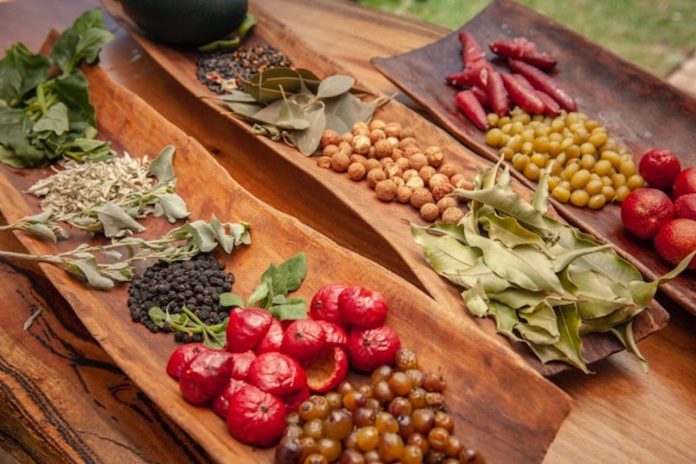Aboriginal tourism businesses have been hit hard by Australia’s closed borders to the rest of the world.
Dale Tilbrook, who along with her brother Lyall, operates the Maalinup Aboriginal Gallery in the Swan Valley, says it has led to a new evolution of their business.
What started as a boomerang making firm in Fremantle, over the years evolved into a gallery, and which now focusses on delivering Aboriginal experiences.
“We were actually the only boomerang makers that SOCOG (Sydney Organising Committee for the Olympic Games) gave special swing tags for the 2000 Olympics, which was a real coup for a little Swan Valley business,” says Dale.
Maalinup continues to operate at 10070, West Swan Road in Henley Brook, next door to Supa Golf at the Swan Valley Oasis Resort. It is packed with Aboriginal art, hand-painted gifts, and a bushtucker range of sauces, jams, chutneys, oils and dukkahs.
With the reduced number of overseas tourists, opening hours have been reduced to Friday, Saturday and Sunday, but Dale says much more emphasis is now being placed on providing experiences to visitors.
Dale is recognised for her knowledge of native ingredients and offers visitors an opportunity to taste a variety of wild bush foods, such as quandong, native limes, sandalwood nuts and local coastal greens.
She talks about the medicinal properties and health benefits of many of the foods, which can be combined with a bushfood inspired lunch.
Visitors can also feed the emus, explore local history and culture or take an art class.
Dale says 80 per cent of the people who come to Australia want to have an Aboriginal experience, but only 20 per cent get it. This has sparked a lot of government interest in developing Aboriginal tourism – with mixed success.
“What has worked in WA is that we have the Western Australian Indigenous Tourism Operators Council, (WAITOC) of which I was a founding member,” she says.
“WAITOC has over the years worked hard to get the right kind of government support to develop tourism businesses.
“The important thing is that the people who want to be in tourism are the ones who are coming forward and being assisted through these government sponsored WAITOC programs.”
The most successful of these are the people who are offering experiences, storytelling, taking people on country, or at Maalinup, sitting down and developing the story of Indigenous food, culture, and art.
Over the years Dale says Aboriginal people have become more comfortable telling their stories.
“Being in control makes it easier for us to select what stories we’re going to tell, because there will still be stories that are not going to be shared, but stories about the land and the food are easy to share, whereas stories about medicine are often quite close secrets.
“There might be something that this particular bush is used for medicine, but we don’t talk about how it’s used. But when we’re in control we are much happier to sit down and share what we want to share.”
There’s also a better understanding of culture from non-Indigenous people than there was, especially locally, whereas previously Dale says it was overseas visitors who came with a little bit of pre-knowledge and thirsting for more.
Covid-19 is not the first catastrophe to hit Maalinup, which was hit badly after 2007 when the global financial crisis created a strong Australian dollar.
“The final nail in the coffin was when some bright spark at the ATO decided to make a rule that if you’d bought art as part of your self-managed super you couldn’t have it in your house or your office, it had to be put in storage,” Dale says.
“You weren’t allowed to look at it, so that put the kibosh on lots of things for everybody’s art, which suffered as a result. Lots of art was put on the market because people were trying to get rid of it. Things got really, really hard.
“A lot of galleries disappeared around that time and while we had been changing our business anyway to add more experiences, we moved more strongly into bush food and that is really what we lead with now.”
While Dale and Lyall have well and truly reached retirement age they have no plans to stop working in the business.
“What else would we do? We don’t have to do more than we want to do.”
To find out more go to www.daletilbrookexperiences.com.au.



































